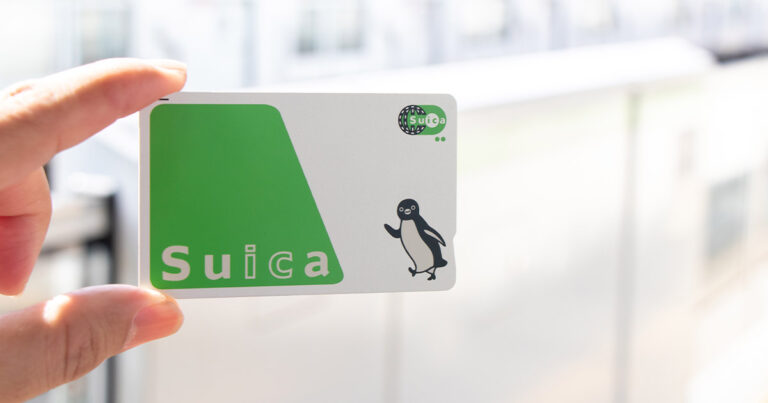An Expat’s Guide To Getting Health Insurance In Australia

This article covers:
- What Is Medicare?
- How To Apply For Medicare
- Private Insurance In Australia
- Where To Find Private Health Insurance In Australia
- Average Private Health Insurance Costs
- Private Health Insurance Rebate
- Overseas Visitors Health Cover (OVHC)
- Purchasing OVHC
- Medicare Levy Surcharge
- Lifetime Health Cover
- Reciprocal Health Care Agreements
If you are moving to Australia, you probably have a long checklist of things you need to take care of before you move. While choosing the right location to live and planning finances usually top the list, health insurance is an aspect that’s crucial for expats, yet we often overlook it. As an expat in Australia, you need to know how health insurance in Australia works. We have come up with a complete guide that will give you a starting point on the topic.
Australia boasts of one of the best healthcare systems in the world as partnership between government and private sectors is actively encouraged. According to Expat Arrivals, even if an individual is from a country with which Australia has a reciprocal agreement, he/she is eligible for a medical cover of a specific amount. However, the rules for getting a health insurance in Australia depend on the type of visa one holds. Here are a few pointers to get started:
What Is Medicare?
The Australian government funds a part of the healthcare system which covers medical treatment at public hospitals.
Medicare is funded partly by Australian taxpayers who pay a 1.5% levy on all taxable income. If you earn over AUD 94,000 (individual) or AUD 188089.59 (family) and do not have private hospital cover, you will be charged an additional 1% levy, rising to 1.5% for incomes over AUD 41797.69 – AUD 292583.81.
Since the amount paid by way of income tax is not sufficient enough for free treatment due to which the government provides additional funding. While inpatient care is covered fully, primary care is covered up to 3/4th of the amount. The remaining charges are covered through a top-up insurance that is taken separately. Medicare covers general practitioners’ services, tests, examinations, and specialists’ fees.
Medicare does not cover:
- Ambulances
- Treatment in a private hospital
- Cosmetic procedures
- Most dental treatment
- Glasses, contact lenses and hearing aids
- Most physiotherapy, occupational therapy and similar
- Home nursing
Besides, the Pharmaceuticals Benefit Scheme subsidises prescriptions and medicines, meaning that patients eligible for Medicare only pay a maximum of AUD 35.87 per prescription. Prescriptions above this amount are fully funded.
How To Apply For Medicare
Once you receive permanent residence in Australia, you need to register for Medicare. A Medicare enrolment application form is available online but you need to submit the form in person at any Medicare Service Centre. You will be issued with a Medicare card which should be used when accessing healthcare in Australia.
Private Insurance In Australia
A private medical insurance policy covers services not covered by Medicare. Also, one can choose to be treated as a private patient in a hospital and can also select his own doctor, etc. While Medicare covers 75% of the expenses, the remaining 25% can be covered by private health fund. A mix of Hospital cover and General Treatment cover can be used for taking all possible costs into account.
Almost 50% of Australians have private health insurance. Private medical insurance in Australia covers ambulance services, private hospitals and general treatment cover. The general treatment cover takes care of the services that are not covered by Medicare, and also provide cover for the difference in Medicare funding for GPs and the fee charged.
While insurance coverage is guaranteed, pre-existing conditions and pregnancy may have a waiting period of up to 12 months. However, you can find many options depending on your location and the industry you are a part of. When buying private insurance, you can go for either limited coverage or higher excess.
Where To Find Private Health Insurance In Australia
If you are considering a private healthcare insurance, the government-run website privatehealth.gov.au is the best place to start. The website lists all private health insurers that are recognised for a tax rebate on insurance. Though you can compare costs with the help of the policy comparison tool on the website, here are a few examples:
Average Private Health Insurance Costs
An adult would shell out somewhere between AUD 125.55 and AUD 188.33 per month for premiums (before rebate).
A family of 2 adults and 2 children wanting top hospital cover and comprehensive extras with no excess or co-pay in the hospital would have to pay somewhere between AUD 521.93–AUD 1253.72 every month on premiums.
Private Health Insurance Rebate
Most Australians with private health insurance are eligible for a tax rebate of around 30% of their premiums paid for hospital, extras and ambulance insurance. The actual rebate varies on the basis of age, income and number of dependent children.
*Note that this rebate does NOT apply to overseas visitors or student cover policies.
Overseas Visitors Health Cover (OVHC)
This health cover is meant for expats who are not covered under the Medicare policy. The Private Health Department of the government simply states how holders of temporary visa are not entitled to use the free benefits, although, those belonging to countries with reciprocal agreements still stand a chance to be treated immediately.
The OVHC broadly covers the admission fee of a hospital and a part of the doctor’s fee. Other expenses related to dentists, physiotherapists, etc. can be covered through General Treatment policies. It is noteworthy that the entire amount cannot be covered under any policy and the individual will have to bear a portion of the medical expenses on his own if the need arises.
Purchasing OVHC
OVHC can vary in terms of the types of treatments covered, the extent to which benefits are provided as well as the waiting periods. Some of them might not cover illnesses that the individual is already suffering from, while some may even include expenses of repatriation in case of an emergency. According to the Private Health Department, the internet can provide access to a number of insurers in Australia who provide insurance covers tailor-made to the visa requirements of students. Comparison of policies to get the best deals is strongly recommended.
Medicare Levy Surcharge
Residents of Australia who earn above a certain limit and are covered under Medicare are liable to pay a surcharge of 1% to 1.5% of their income. This step has been taken to encourage adoption of the private insurance system and limit dependence on Medicare. The parties to the surcharge include:
- An individual
- His or her spouse
- Children under the age of 21
- Children under the age of 25 who are students
The following persons are eligible to pay surcharge:
- A single individual having a taxable income of more than $90,000.
- A family with one or no child having an aggregate taxable income of more than $180,000 (plus $1500 for every additional dependent child).
- Individuals or families not covered any registered fund.
In fact, the government also offers a rebate if one opts for private health cover. The rebate can be claimed by paying a lesser amount of premium or through the return filed.
Lifetime Health Cover
Expats who have recently migrated to Australia can register for Lifetime Health Cover after their 31st birthday or the completion of one year of Medicare registration whichever is later, following which loading starts to apply. This health policy has been developed for encouraging individuals to get insured at the earliest.
Reciprocal Health Care Agreements
Australia has reciprocal agreements with a few countries. Citizens of those countries are entitled to emergency medical treatment while in Australia. The countries that Australia has a reciprocal agreement with are New Zealand, UK, Ireland, Malta, Italy, the Netherlands, Norway, Sweden, Finland, Belgium and Slovenia.
The cover comes with the following exceptions and limits:
- Retirement visa holders who applied after December 1, 1998, are not eligible for Medicare and are not covered by RHCA.
- Visitors from Belgium, the Netherlands or Slovenia need to show their European Health Insurance Card (EHIC) to enrol in Medicare and are only eligible for cover until the expiry date on that card (or they leave Australia).
- Visitors from Malta and Italy are covered for a period of 6 months from initial arrival.
- Students from Norway, Finland, Malta and the Republic of Ireland are not covered under the RHCA.
It is extremely important for expats to get covered under the right medical policy if you don’t want to get saddled with steep medical expenses. So, make the right move now and get online to find the right health care policy to cover yourself and your family during a medical emergency.
Instarem stands at the forefront of international money transfer services, facilitating fast and secure transactions for both individuals and businesses. Our platform offers competitive exchange rates for popular currency pairs like USD to INR, SGD to INR, and AUD to INR. If you're looking to send money to India or transfer funds to any of 60+ global destinations, Instarem makes it easy for you. We are dedicated to simplifying cross-border payments, providing cutting-edge technology that support individuals and businesses alike in overcoming traditional fiscal barriers normally associated with banks. As a trusted and regulated brand under the umbrella of the Fintech Unicorn Nium Pte. Ltd., and its international subsidiaries, Instarem is your go-to for reliable global financial exchanges. Learn more about Instarem.

























